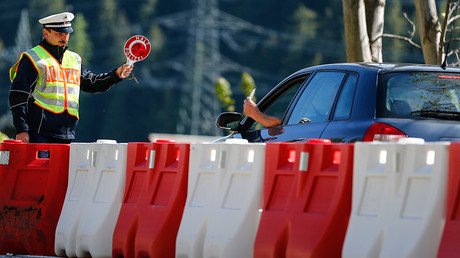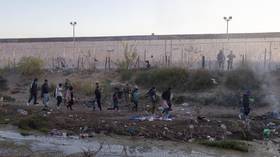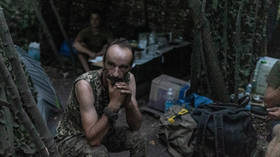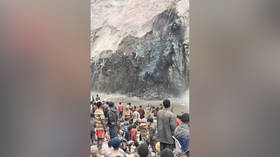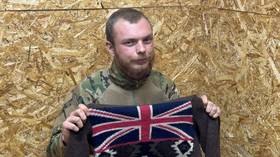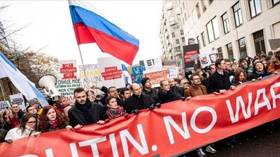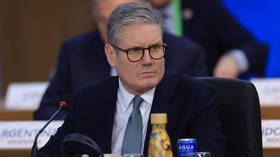Munich Security Conference report: Europe at odds amid ‘boundless crises’
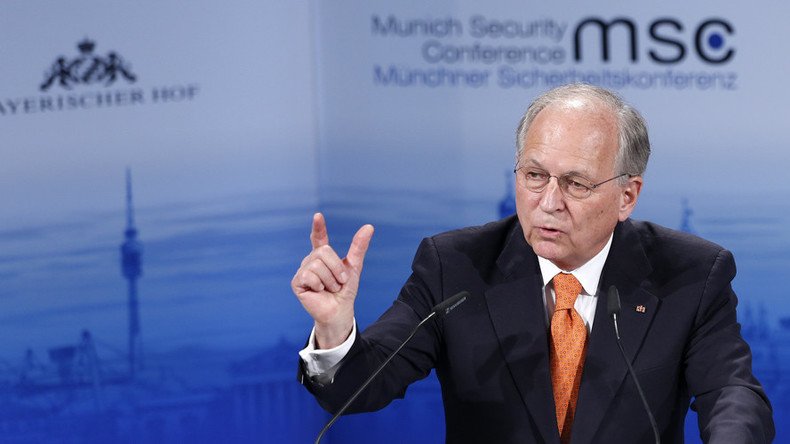
Europe is in the middle of raging crises on its doorstep, including the Syrian war and the refugee influx it is causing and Ukraine's uncertain future, while the Schengen Zone is in trouble and Brussels is “paralyzed,” a newly released Munich Security Conference report warns.
The report, titled “Boundless Crises, Reckless Spoilers, Helpless Guardians” went online ahead of the upcoming 52nd session of the Munich Security Conference. The prominent international political event, featuring some 30 high-ranking officials from various countries, including Russian PM Dmitry Medvedev, opens February 12 in the Bavarian capital, Munich.
.@ischinger showing our new Munich Security Report
- will be available for download at 1 pm: securityconference.de pic.twitter.com/lO94PlbwEb
— Security Conference (@MunSecConf) January 27, 2016The authors, including German diplomat and Munich Conference chairman Wolfgang Ischinger, were pessimistic describing the state of Europe and the West. “The traditional guardians of a liberal international order seem to believe less and less in their ability to shape events,” said the report.
The European neighborhood was seen at great odds, as “from Libya to Iraq, from Mali to Afghanistan, states are failing.”
The bloody Syrian war, along with other Middle Eastern conflicts, might bring violence to European soil, the report warns, citing Angela Merkel’s quote that Europe “had not yet sufficiently understood that what happens in Aleppo and Mosul can affect Essen or Stuttgart.”
Who's taking the sea route to Europe? UNHCR @Refugees data from our forthc. MunSecReport, prepared for the #MSC2016pic.twitter.com/OxWQ6Y8vDS
— Security Conference (@MunSecConf) January 23, 2016Syria has been the main driver of Europe’s refugee crisis, the paper says, mentioning EU’s inefficient migration policy. According to the authors, since the fall of the Berlin Wall in 1989, over 40 countries worldwide have erected fences against more than 60 of their neighbors, with 15 new walls built in 2015 alone. “In Europe, the border-free Schengen area is under threat,” the report alerts.
The EU itself faces challenges for years to come, it adds: “Europe has so far failed to build a credible common foreign and security policy as envisaged by the Treaty of Lisbon.”
Instead, Brussels “continues to be handicapped” by multiple major problems, including “continuing question marks surrounding Greece and the euro,” the threat of Brexit and of re-erected borders across Europe and also “a resurgence of illiberal right-wing nationalism and populism.”
Another major challenge for Europe is a “shaky agreement on sanctions against Russia” and “diverging US and European paths.” As seen from European perspective, the current relationships between Russia and the West “may indeed be in its worst shape since the end of the Cold War” while an “escalation of violence between major powers cannot be dismissed as an unrealistic nightmare.”
In contrast to what Washington sees as a “reassurance” of its NATO allies against “assertive” Russia by putting more troops in Eastern Europe, the report argued: “Still others [among NATO countries] think that too strong an emphasis on NATO’s Eastern borders could be dangerous in the long run.”
The militarization of Eastern Europe brings nothing but Europe being split into Western and Russian camps and very few countries in the middle. “Eastern Europe might witness the emergence of a new kind of Iron Curtain at the NATO-Russian border and a cordon consisting of those few countries ‘in between,’ whose security status and economic relationships remain contested,” the paper admits.
The country “in between” is Ukraine, that topped the Munich Conference’s agenda last year. Remarkably, the report said Brussels is not going to offer Kiev any large-scale financial or political support beyond the free-trade agreement citing “increasing skepticism regarding the Ukrainian willingness to reform.”
The 2015 conference featured Ukraine’s president Petro Poroshenko who showed “Russian passports” he claimed were taken from fighters in the rebel East of the country, as well as a shrapnel-ridden piece of metal he said had belonged to a bus destroyed by a landmine - presenting both as "evidence" of Moscow’s involvement in the conflict, which the Russian side has been firmly denying, dismissing any allegations for lack of proof.
Moscow demands copies of ‘Russian soldiers IDs’ shown in Munich http://t.co/88OqhGBW2cpic.twitter.com/QxZC3W8uDx
— RT (@RT_com) February 8, 2015In 2016, Europe and the West are likely to face a period of growing risks, “including of military confrontation, of uncertainty, and of fundamental transformation – the beginning of a more unstable international era,” the conference report summarized.
